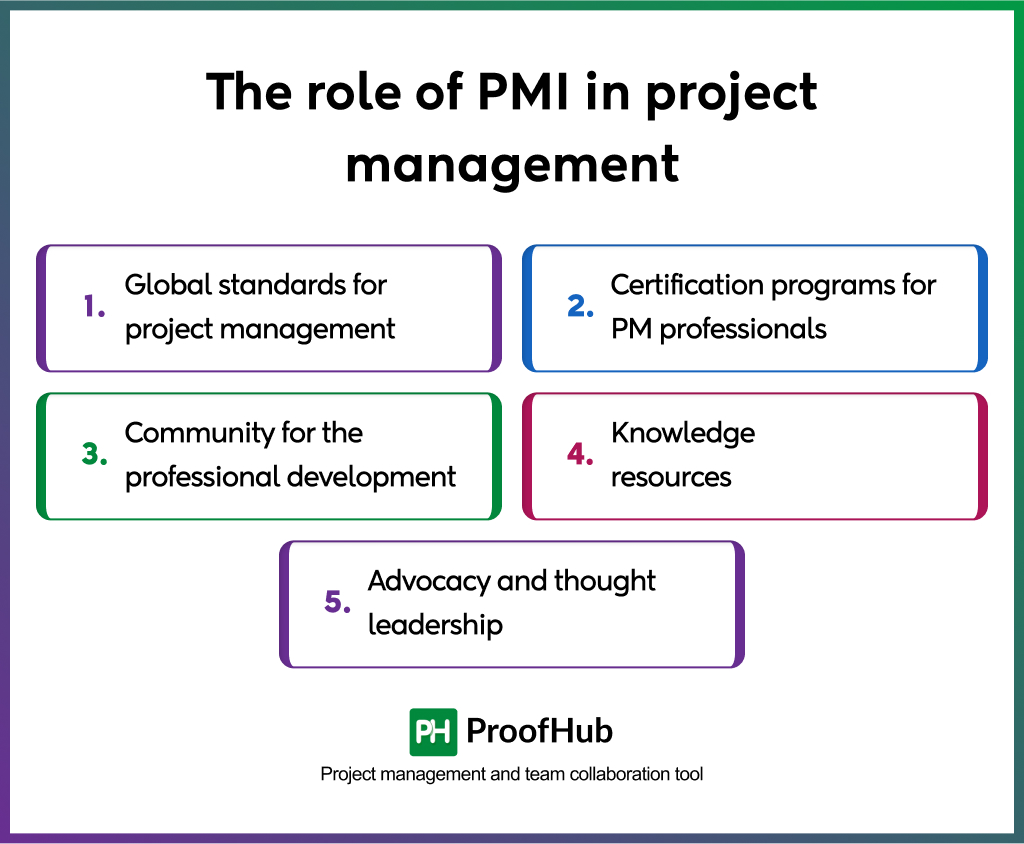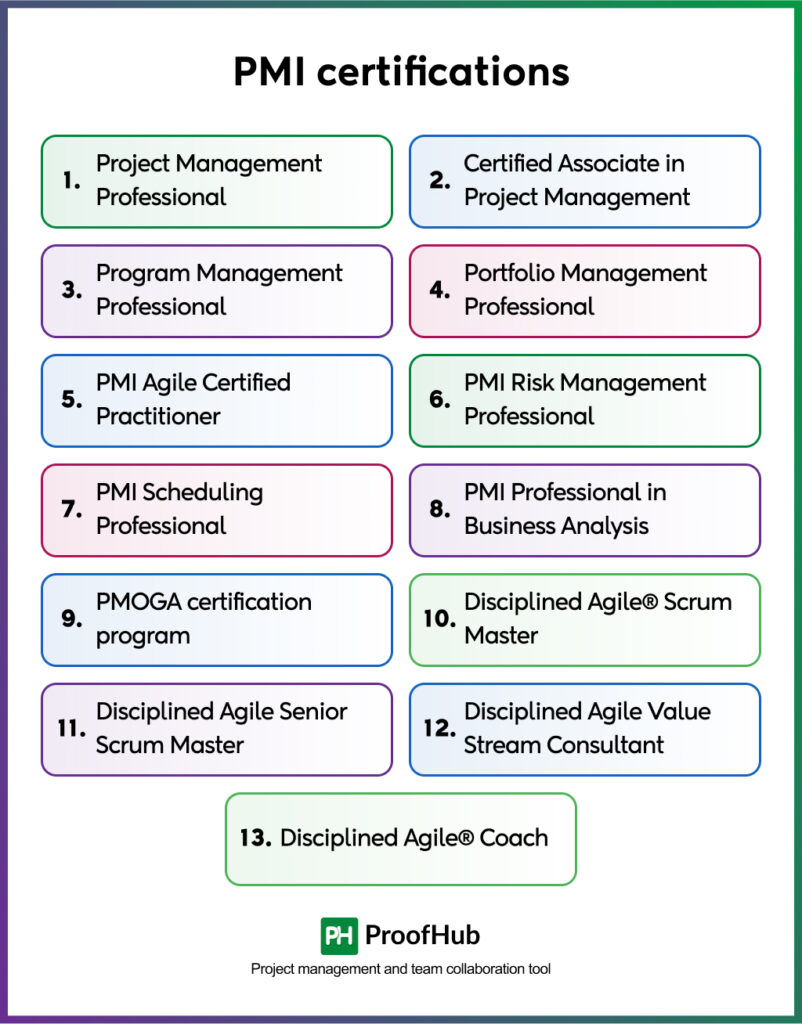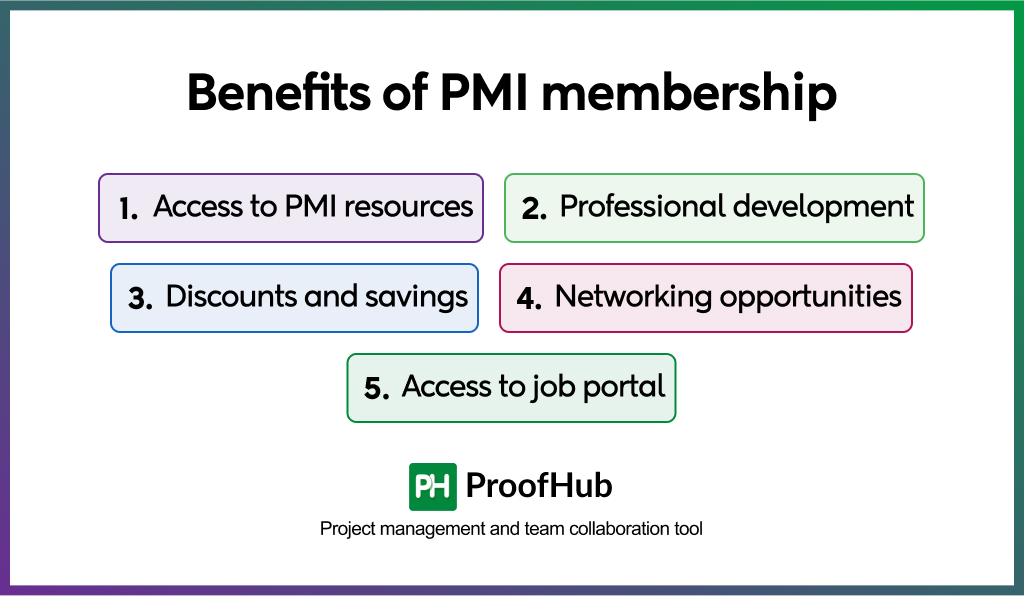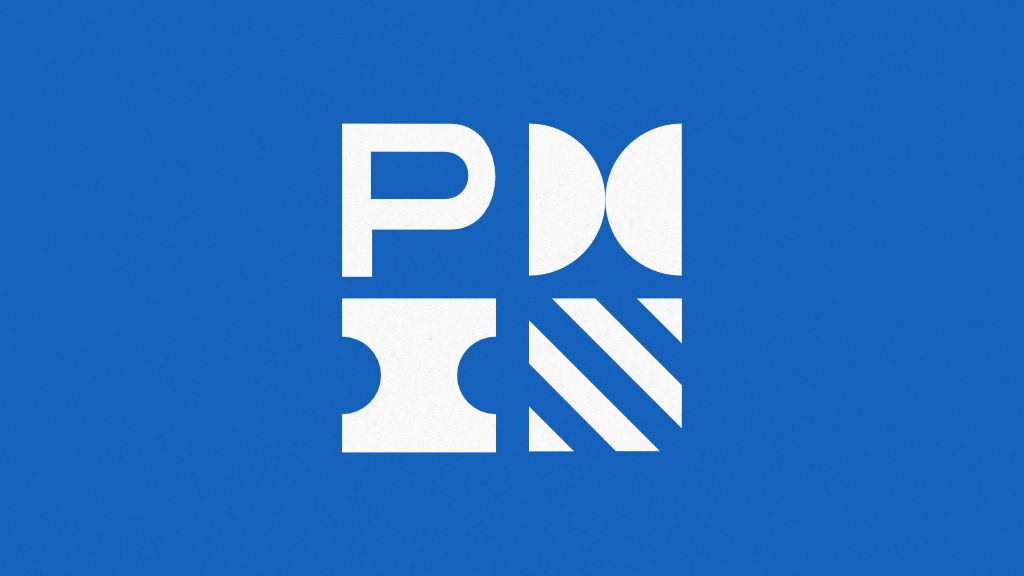Introduction
PMI, the Project Management Institute (PMI) is a not-for-profit professional organization for project management. It provides resources for project management professionals to build knowledge of the project management discipline. There is a lot to explain related to the PMI, which we will discuss in this post: the history, the role of PMI in project management, what it offers, and so on.
But, if you want a quick answer, it is the gold standard of project management. It creates or defines standards in the world of project management that are officially accepted across the globe by governments, organizations, or professionals. Practically, it is the most trusted source of information on project management for people in the world of project management.
You must have heard of the PMBOK® guide and PMP certification. These are also the creations of PMI.
In this post, we will discuss all you need to know about PMI in project management.
What is PMI in project management?
PMI stands for the Project Management Institute. It’s a not-for-profit professional membership association for project management professionals. The association aims to provide knowledge resources, certifications, networks, and best practices for those who are seeking to build skills in the area of project management.
It started in 1969 in the U.S. and currently has more than five million professionals, including over 680,000 members in 217 countries and territories around the world, with 304 chapters and 14,000 volunteers serving local members in over 180 countries (Source: Wikipedia).
The purpose of this not-for-profit organization is to help project management professionals across the globe.
A brief history of the PMI
PMI was founded in 1969 by five individuals: James Snyder, Gordon Davis, Susan Gallagher, Eric Jenett, and Ned Engman over a dinner. They felt the need for a formal and professional organization to standardize project management practices. Thus, they created a platform for project managers to share knowledge, discuss challenges, and find solutions. The inaugural seminar, titled “Advanced Project Management Concepts,” was held in Atlanta, Georgia, marking the beginning of PMI’s commitment to education and professional development. Since then, PMI has become a gold standard for project management.
It standardizes project management practices, offers a range of certifications that validate a professional’s expertise in project management, provides resources for professional development, including webinars, workshops, and conferences, conducts research to advance the field of project management, and provides a global community of project management professionals, fostering collaboration and knowledge sharing across borders and industries.
Another major contribution of the PMI is in the development of project management software. Many project management software solutions are designed to align with PMI’s guidelines. The purpose is to make it easier for teams to implement best practices and achieve their project goals. Project management software that integrates with PMI standards can help teams adhere to best practices, streamline processes, and improve project outcomes. Features such as Gantt charts, project risk management tools, and resource allocation modules are often designed with PMI’s guidelines in mind. Check how ProofHub can help you manage a project as per the PMI standards.
What is the role of PMI in project management?
“PMI has been instrumental in elevating project management to a true profession. The PMBOK Guide is the cornerstone of project management knowledge, and PMI certifications like the PMP have become the gold standard for validating a project manager’s expertise.” – Dr. Harold Kerzner, Author, Project Management: A Systems Approach to Planning, Scheduling, and Controlling

PMI plays a vital role in the world of project management. If I try to sum up for the enhanced clarity, it provides:
- Global Standards for Project Management
- Certifications for Project Management Professionals
- Community for professional development of project management professionals
- Knowledge and training resources
- Advocacy and thought leadership
1. Global standards for Project Management
PMI develops and maintains globally recognized standards for project management. The most popular example is PMBOK® Guide or A Guide to Project Management Body of Knowledge. It defines the core principles, frameworks, methodologies, best practices, and standard terminology of project management to ensure consistency and effectiveness in project management.
2. Certification programs for project management professionals
The next biggest offering of the PMI is certification programs. Anyone who wants to build skills in project management and get globally certified as a project manager can opt for PMI certifications.
PMI offers a variety of certifications. However, the most popular and industry-leading certifications include:
- Project Management Professional (PMP®): The most recognized project management certification worldwide.
- Certified Associate in Project Management (CAPM®): For entry-level project managers.
- Program Management Professional (PgMP®): For managing multiple projects.
These certifications validate skills, enhance credibility, and open career opportunities for project professionals.
3. Community for the professional development of project management professionals
PMI offers a community for PMI members where you get to connect with project management experts around the globe. Many seminars, workshops, and conferences take place throughout the year, and you can attend them to expand your knowledge and experience of project management. These global conferences, webinars, and workshops provide an opportunity for networking among project managers. Its local chapters worldwide provide a platform for professionals to share knowledge and gain practical insights.
4. Knowledge resources
Most people know about the PMBOK® Guide but PMI provides a wide range of additional knowledge resources in the form of research studies, whitepapers, reports like the “Pulse of the Profession®”, templates, and case studies to provide insights into emerging trends, industry challenges, and best practices in project management while helping in project execution and success.
PMI provides knowledge-sharing opportunities through its conferences, webinars, and chapter meetings. It also offers support via online community and forums.
5. Advocacy and thought leadership
PMI is the gold standard in project management, and it was created with the objective in the mind of, “to foster recognition of the need for professionalism in project management; provide a forum for the free exchange of project management problems, solutions, and applications; coordinate industrial and academic research efforts; develop common terminology and techniques to improve communications”.
Staying true to the objectives, it works with governments, industries, and academic institutions to promote the value of project management and advocates for the adoption of professional project management practices across industries. It promotes the value of project management in achieving organizational success and funds studies that advance the understanding and application of project management principles.
What resources do PMI offer for project managers?
PMI offers a vast range of resources, but the PMBOK guide and Project Management Professional (PMP) certification are the most popular and gold standard. Let’s explore them.
1. PMBOK® Guide
“A Guide to the Project Management Body of Knowledge”, known as the PMBOK Guide is a trademark creation of PMI. In 2012, ISO adapted the project management processes from the PMBOK Guide 4th edition. The PMBOK Guide has been recognized as the standard for project management by the American National Standards Institute (ANSI). It is accepted by governments and organizations across the globe as the golden standard of project management.
PMBOK Guide is a book that contains all the standards and guidelines established by the Project Management Institute for successful project management.
Project management professionals worldwide rely on the Project Management Institute’s standards and guidelines to boost business success and manage different projects during their project management careers.
2. Project Management Professional (PMP) certification
The next big contribution by the PMI is the Project Management Professional (PMP) certification. It was launched in 1984, and currently, as of May 2020, there are more than one million PMP professionals in the world.
PMP certification proves the knowledge and skills of the certification holder in the area of project management. This certification earned the ANSI/ISO/IEC 17024 accreditation from the International Organization for Standardization (ISO) in 2007.
What is PMI certification?
PMI offers a wide range of credentials and certifications. It has something for everyone, whether you are a project manager or someone who has just started their career.
PMI has both entry-level and specialist certification schemes that are specifically designed to help professionals recognize their knowledge and competency and then use it to grow in their profession.
List of PMI certifications
PMI’s first credential was the PMP, launched in 1984. Since then, PMI has come a long way and launched more than 10 certification programs, with the latest being Disciplined Agile Coach (DAC).

You can check PMC certifications here
1. Project Management Professional (PMP)®
The Project Management Professional (PMP) is a gold standard project management certification that is recognized worldwide. It is designed for experienced project managers and validates your ability to manage people, processes, and business priorities and skills in project management to fit the role of a project manager in any organization.
2. Certified Associate in Project Management (CAPM)®
The Certified Associate in Project Management (CAPM) is an entry level certification program designed to improve your understanding of the fundamental terminologies and practices of project management. If you’re a project manager who would like to gain more control over projects or add more project management skills into your role, then CAPM is for you.
3. Program Management Professional (PgMP)®
Program Management Professional (PgMP) certification is designed for senior-level professionals who manage multiple, complex projects and teams. Through this certification, you prove your ability to manage multiple projects and navigate complex activities to achieve results that align with the organizational goals.
4. Portfolio Management Professional (PfMP)®
The Portfolio Management Professional (PfMP) certification is designed for executives and senior practitioners who manage a portfolio of projects and programs to achieve strategic organizational goals. It recognizes the experience and skills of portfolio managers. If you would like to demonstrate your ability to manage one or more portfolios to achieve your organizational objectives, you should go for PfMP.
5. PMI Agile Certified Practitioner (PMI-ACP)®
The PMI Agile Certified Practitioner (PMI-ACP) certification is created for those who want to learn about Agile principles and practices in project management. It validates your skills and expertise in Agile principles, tools, and techniques, including Scrum, Kanban, Lean, and more.
6. PMI Risk Management Professional (PMI-RMP)®
The PMI-RMP certification is for professionals who want to demonstrate knowledge and skills in project risk management. It validates your specialization in identifying, assessing, and mitigating project risks. This certification teaches you how to mitigate threats and capitalize on opportunities in project management.
7. PMI Scheduling Professional (PMI-SP)®
The PMI Scheduling Professional (PMI-SP)® certification is for those who need to demonstrate their knowledge and expertise in developing and maintaining project schedules. It validates your knowledge and skills in developing, managing, and maintaining project schedules.
8. PMI Professional in Business Analysis (PMI-PBA)®
Through PMI Professional in Business Analysis (PMI-PBA) certification, you highlight your knowledge and skills in the specialized area of business analysis. It helps you showcase your ability to define business requirements effectively, plan the project outcome, and lead a team successfully towards the same. This certification is ideal for professionals who work with stakeholders to define business requirements and drive successful project outcomes.
9. PMOGA certification program: PMO-CP® and PMO-CC®
PMOGA certification program is a certification program by the PMOGA (Project Management Office Global Alliance) which was not directly affiliated with PMI, but PMI has recently acquired it and added its certification to the portfolio. The PMOGA certification program includes two certification programs: PMO-CP (PMO Certified Practitioner) and PMO-CC (PMO Certified Consultant) credentials designed for PMO professionals. It provides resources, frameworks, and certifications specifically tailored for PMO professionals.
- PMO-CP® Certification: It is an entry-level certification that offers foundational knowledge of PMOs.
- PMO-CC Certification: It is an intermediate-level certification program for experienced professionals that offers a deeper understanding of PMO practices and tools. It is ideal for active PMOs that provide consultancy services to organizations looking to establish or enhance their Project Management Offices (PMOs).
10. Disciplined Agile® Scrum Master (DASM)
DASM certification teaches the fundamentals of Agile and Lean. It includes context for predictive approaches and adaptive approaches like Scrum, Kanban, and SAFe®. It is ideal for beginner professionals looking to build skills in leading agile teams successfully.
11. Disciplined Agile Senior Scrum Master (DASSM)®
Disciplined Agile Senior Scrum Master (DASSM) certification teaches advanced Agile techniques and leadership skills. It is ideal for experienced agile practitioners like Scrum Masters and Agile coaches looking to learn using the Disciplined Agile (DA™) tool kit to optimize how teams work, work with allies within their organization, and solve a variety of advanced problems.
12. Disciplined Agile Value Stream Consultant (DAVSC)®
Disciplined Agile Value Stream Consultant (DAVSC) is a certification for professionals who are looking to implement Agile at the organizational level. It teaches you practices from Flow, Lean, the Theory of Constraints, and Organizational Development into Disciplined Agile with the purpose of giving you the tools to optimize enterprise-wide value streams, improve organizational agility and apply Disciplined Agile® to your organization.
13. Disciplined Agile® Coach (DAC)®
Disciplined Agile Coach is the highest level of certification in PMI’s Disciplined Agile toolkit. It is designed for advanced-level Agile practitioners who want to master the skills required to coach organizations, teams, and individuals in adopting and scaling Disciplined Agile (DA) practices. This certification focuses on advanced coaching techniques, leadership, and organizational change management. It certifies individuals to lead large-scale Agile transformations and mentor other Agile practitioners and coaches.
What is PMI Membership?
PMI membership is a subscription-based program that allows individuals to join the PMI community. It allows access to exclusive resources, certifications, and professional development opportunities for PMI members. PMI membership is not just for project managers. It is open to anyone interested in project management and who would like to manage projects better, regardless of their experience level or industry. The PMI membership works for almost every industry.
What are the benefits of PMI membership?

PMI membership offers a wide range of benefits, which can be categorized into the following areas:
- Access to PMI resources: PMI provides access to a vast range of project management resources such as PMBOK® Guide, Agile Practice Guide, Standard for Program Management, Standard for Portfolio Management, PMI templates, and more. Along with that, you get digital access to PMI’s journals, including PM Network® and Project Management Journal®, which feature articles on industry trends, case studies, and best practices.
- Professional development: PMI Project Management Academy offers on-demand courses and learning modules to help members enhance their skills. You can earn the Professional Development Units (PDUs) by enrolling in these courses. In addition to this, you get access to exclusive webinars, workshops, and training sessions on the latest project management trends and study materials, practice exams, and other resources to help members prepare for certification exams.
- Discounts and savings: PMI members receive significant discounts on certification exams, including the PMP, CAPM, PMI-ACP, and others. Not just that, these discounts run on the PMI conferences, seminars, training events, books, and other resources from PMI’s partners.
- Networking opportunities: PMI has over 300 local chapters worldwide, providing opportunities to connect with other project management professionals in your area. If there is no chapter in your area, there is a huge global online community of project management professionals that you can access online.
- Access to job portal: PMI members also get access to PMI’s job board, Career Central. It is specifically for project management roles. Members also get tools and resources to help build their resumes, prepare for interviews, and advance their careers. There are mentorship programs where you can participate either as a mentor or mentee.
Become a member of PMI to manage projects professionally
PMI teaches you how to manage projects formally and professionally with standard practices. If you want to manage simple projects, free learning resources are good enough to empower you with project management knowledge. However, if you want to master the art of project management, becoming a member of the Project Management Institute is an efficient and quite convenient move.
Not just PMI membership, start using project management software to organize, plan, manage, and execute your projects.
With the right knowledge from the PMI and the right project management software like ProofHub, you can make your project succeed every time!
FAQs
What industries benefit most from PMI standards?
PMI standards benefit IT, construction, healthcare, finance, manufacturing, and government industries. Any sector requiring structured project execution, risk management, and efficient resource allocation can leverage PMI frameworks to enhance project success and operational efficiency.
Is PMI helpful for beginners in project management?
Yes, PMI is highly beneficial for beginners. Certifications like CAPM® provide foundational knowledge, while PMI resources, networking opportunities, and best practices help new project managers build expertise and advance their careers.
What is the eligibility for PMI certifications?
The eligibility for PMI certifications varies by certification. For example, for PMP®, candidates need project management experience and formal education, for CAPM®, require a high school diploma and basic project management education, and for advanced certifications like PgMP®, require extensive project/program management experience.

